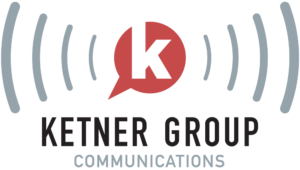This blog was written by our intern, Cambria Sawyer.
That whole “chicken or the egg” question may be archaic, but it’s more relevant than you think.
Walking into your freshman year at a university and landing that first internship is not particularly high in the priorities list – but it should be. When it’s all you can do to find time to feed yourself in between classes, class projects and research papers, how can something that seems so far away be so immediately important?
The thing is, when it comes to internship interviews, you need some experience to prove you’re up for the job, which is kind of hard to do, considering you’ve never worked anywhere before. Classic chicken or the egg.
But the puzzle can be solved, and here’s how:
Experience
Get involved early. This is how to get over the “lack of experience” hump.
First things first, join a club. This is why starting early is such a big deal, because it takes a while to absorb enough information from that membership to be worthwhile. For public relations students, joining the Public Relations Student Society of America (PRSSA) is an excellent starting point. As a member, you will have the opportunity to participate in third-party mentorship programs, volunteer activities, networking events and PR agency tours. In other words, the good stuff.
The organization doesn’t have to revolve around PR either to be meaningful, but PR is always relevant to any group wanting to stay afloat. Run for an officer position that handles communications, PR or social media for a club. Any way you can get your hands on some real-life application of the things you’re learning in class will make you a stronger candidate.
Resume
You can be the most qualified person they interview and still not get the job. How? The way you present yourself can make or break you, and it starts with the first impression you make, your resume.
First, make sure it’s one page. It shows that you can pinpoint what is important and convey it concisely, and in reality, it’s just easier to read.

Second, make it your own. No need to glue sequins on it or anything, but find a way to personalize it in a way that reflects who you are and helps you stand out, but is still professional.
Third, do not send it off as a Word doc. While converting it to a PDF shows a heightened level of professionalism, it also safeguards the formatting of your resume. It may look fabulous to you on your Mac computer, but your interviewer is seeing awkward spacing and weird margins on their PC.
Interview
There is a reason people interview candidates instead of just look at a resume; they want to see what you’re like.
Here are three steps to ace the interview:
- Research. Make sure you become familiar with the company and the interviewer, if you know who it is. If they specialize in something, look into that industry a bit. Read up on the clients they work for and what kind of work they do for them. Check out the interviewer’s LinkedIn page to understand their background and what they do at the company. Your choice to research correlates with the amount of investment and ingenuity you will bring to the job – something an employer definitely wants to see.

Photo courtesy of Pixabay
- Ask Questions. This one is pretty straightforward. Actually have some questions in mind when they ask the standard, “do you have any questions for me?” This shows that you’re engaged, inquisitive and are there to learn more – which is the whole point of the internship in the first place, right?
- Be Yourself. Sorry for the cliché, but it’s important. Be professional and unique, but not in a way that misrepresents who you are as a person. If you get a job pretending to be someone you’re not, it won’t be a good fit. When you get a job offer from your future employer to whom you were completely genuine with, both you and the company will grow – because that office is exactly where you should be.
Happy interviewing!
